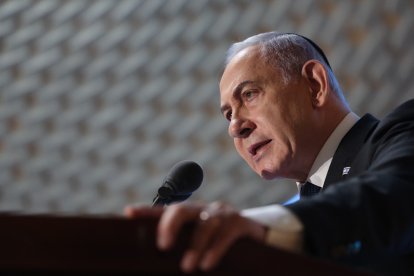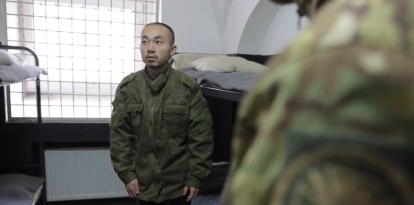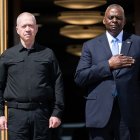Benjamin Netanyahu addresses nation after Haniyeh's death: 'Ready for every scenario'
Iran and Hezbollah could seek revenge after the death of the Hamas leader in an attack on a building in Tehran.

Benjamin Netanyahu
Benjamin Netanyahu gave a televised address to the Israeli nation on Wednesday. It was the prime minister's first major appearance after the latest attacks that claimed the lives of Ismail Haniyeh, Fuad Shukr and other Hezbollah and Hamas commanders.
During his address, Netanyahu stated that the coming days will be challenging. "Since the strike in Beirut, threats are being sounded from everywhere," he said, according to The Times of Israel. "We are ready for every scenario," he vowed, "and will stand united and determined against every threat."
The Likud party leader made no direct allusion that takes Israel's involvement in Haniyeh's death for granted. This was despite the fact that Iran did accuse the IDF of being behind the bombing of the Tehran building where the Hamas leader was staying.
Netanyahu reiterated that the war will take time and called for resistance from the citizens of Israel. He claimed that he has been subjected to internal and external pressure to end the war. "I did not give in to those voices then, and I don’t give in to them now," he stressed.
Instead, Netanyahu assured that his administration's decisions have brought great achievements to Israel to fulfill its goals. "All of the achievements in recent months were attained because we did not give in," Netanyahu stressed, "and because we made brave decisions in the face of great pressure at home and abroad. And I tell you it was not easy," he concluded.
Pre-war tone
In this context, the United States has issued warnings to its citizens asking them not to travel to Lebanon. It has also advised its citizens to stay away from Israel's northern region bordering Lebanon.
Meanwhile, several media outlets report that some of major U.S. airlines, such as Delta Airlines, plan to cancel flights to the region over the next few days.
Despite all this, the United States does not foresee an "imminent" escalation, but admitted that Israel's latest attacks "do not help" tensions in the Middle East, the White House said.
"These reports over the last 24-48 hours certainly don't help with the temperature going down," in the region, White House Homeland Security spokesman John Kirby told a news conference. "There's [sic.] no signs that an escalation is imminent," he added.
RECOMMENDATION





















